Sustainability was of utmost importance to Architect Diana Kellogg, who designed the project pro bono and worked entirely with all local craftsmen to build the first structure–the school– out of hand-carved Jaisalmer sandstone.
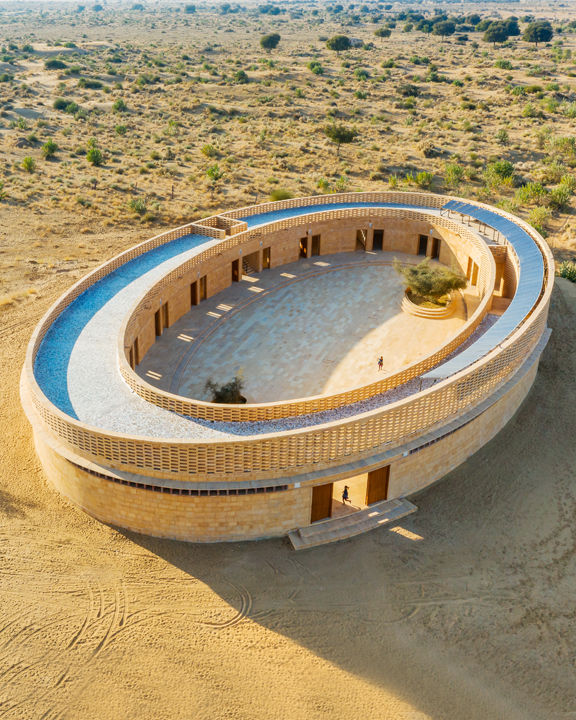
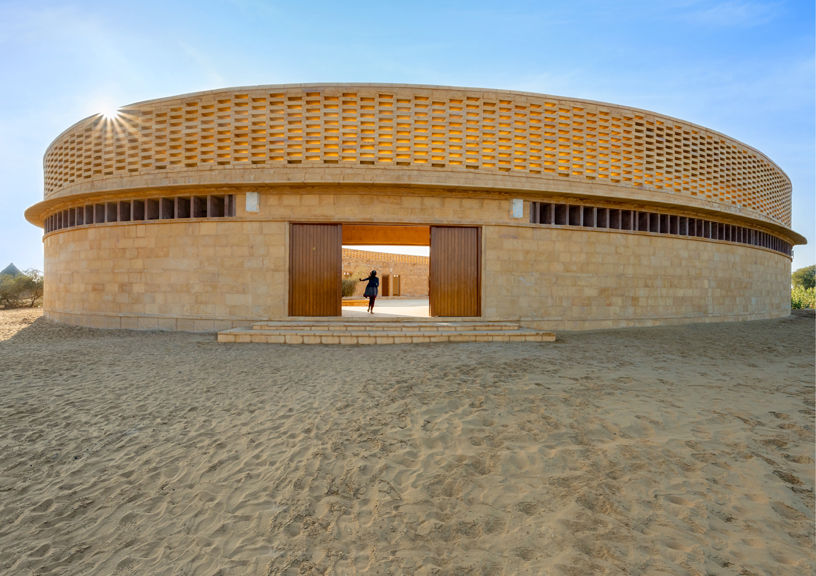
The project located at Thar Desert in Rajasthan has an oval sandstone structure that blends seamlessly into the arid landscape. The school will serve more than 400 girls, from kindergarten to class 10. Local craftsmen—often the fathers of the girls—built the school using local sandstone, and soon two more structures will be erected: The Medha– a performance and art exhibition space with a library and museum, and The Women’s Cooperative where local artisans will teach mothers and other women weaving and embroidery techniques from the region.
The complex of three buildings will be known as the GYAAN Centre. The Centre was created in partnership with CITTA, a non-profit organization that supports development in some of the most economically challenged, geographically remote or marginalized communities in the world. The Centre will equip young women with the tools to further their education and independence as well as raise awareness surrounding the issues faced by women in India on a global scale. Since the Centre is designed by a woman for women, the architect looked at feminine symbols across cultures when starting the design process– specifically symbols of strength, landing on a structure of three ovals to represent the power of femininity and infinity. From above, the ellipse structure blends seamlessly into the planes of sand-dunes in the region of Jaisalmer, with curved walls reminiscent of Rajasthan’s forts.
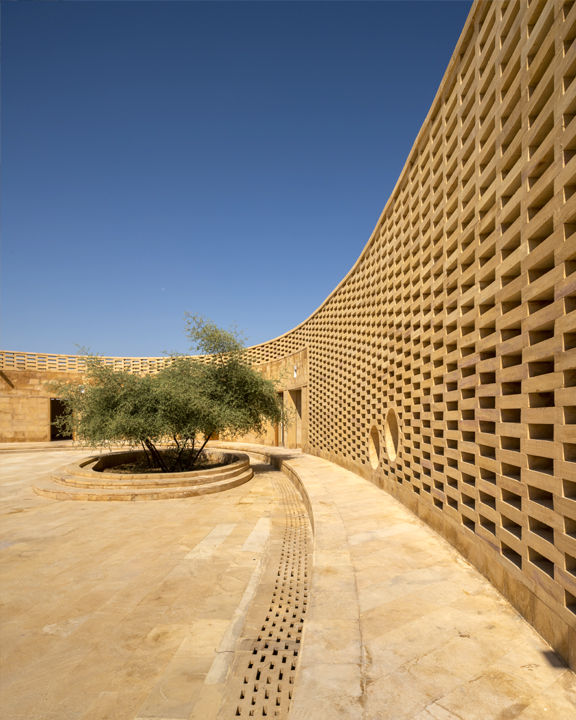
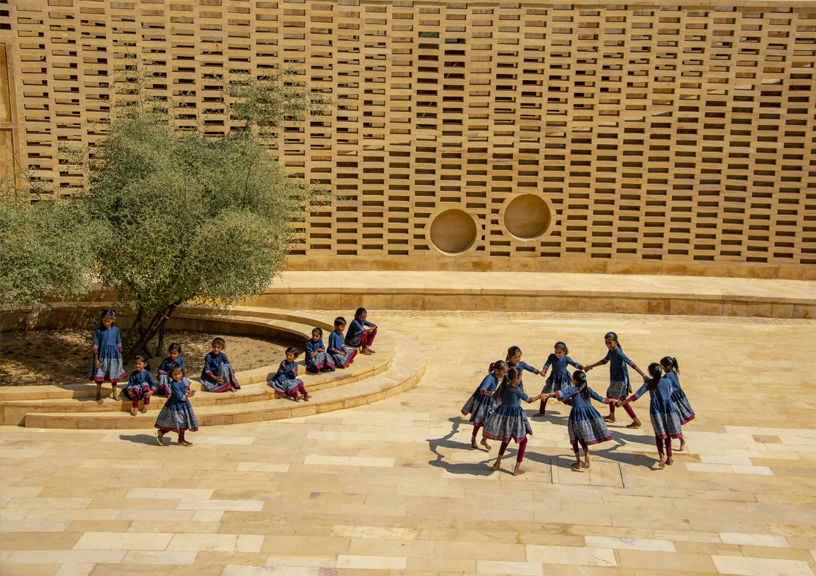
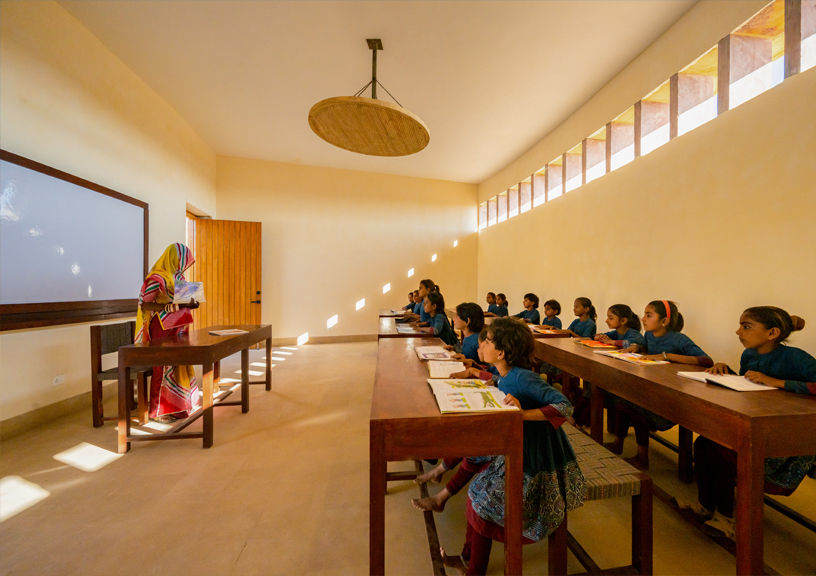
Sustainability was of utmost importance to the architects, who designed the Centre pro bono and worked entirely with all local craftsmen to build the first structure–the school– out of hand-carved Jaisalmer sandstone. Inside the school, visitors are greeted by a sweeping staircase and a wall decorated with diyas, small stone flower medallions signifying each classroom and the donors for the project. Winding corridors lead to classrooms, a computer centre and a sprawling terrace, all donned with furniture made locally out of rosewood with classic Charpai woven seating. A parapet wall is also featured as a reinvention of the jalis, screen walls traditionally used to hide women for privacy.
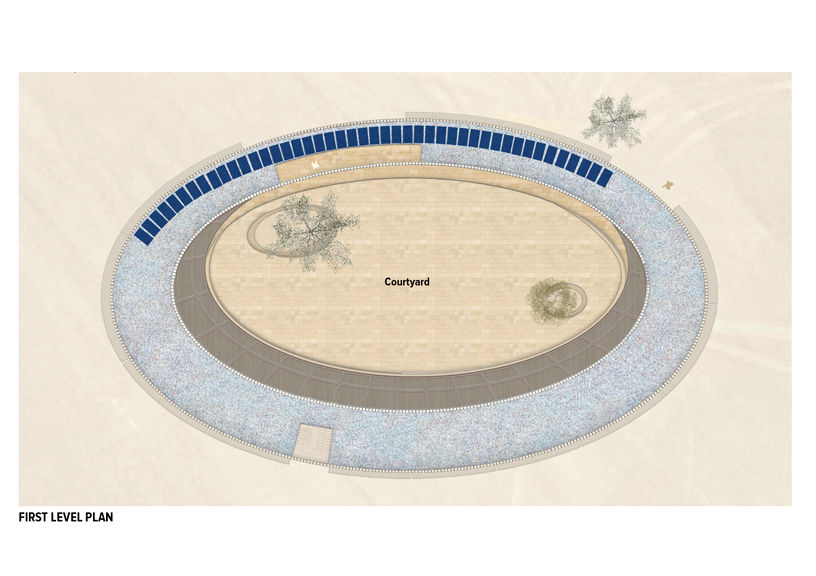
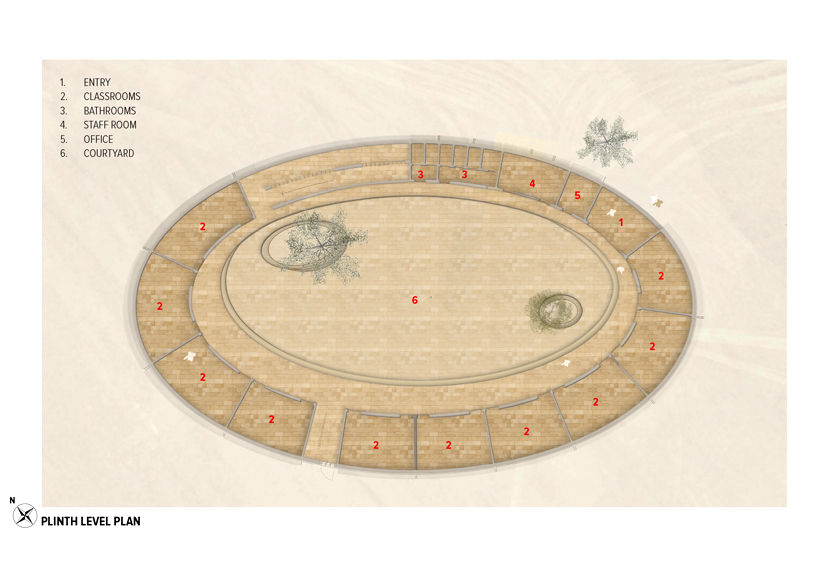
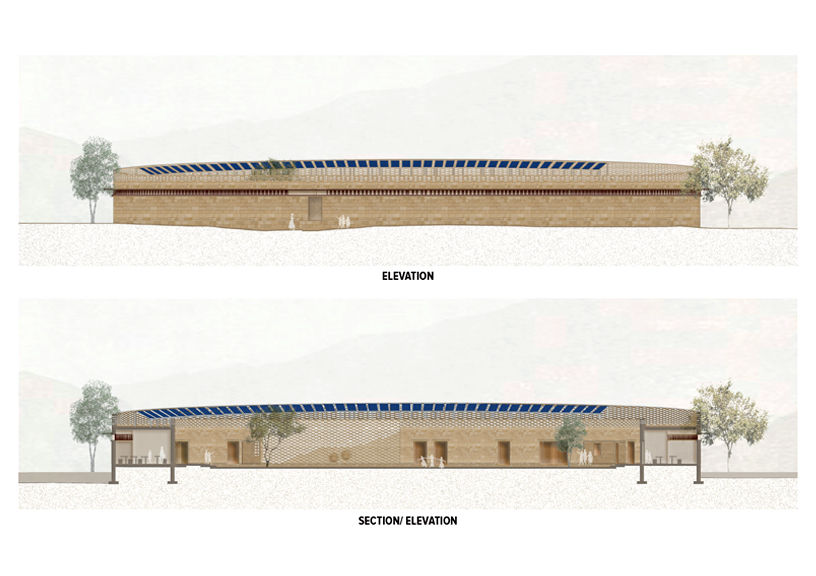
The design team followed the local ancient water harvesting techniques to maximize the rainwater and recycle grey water in the school. While the building is oriented to maximize the prevailing wind and keep maximum sunlight out, the team also employed solar panels for the lighting and fans in the building. A solar canopy on the roof with a metal framework doubles as a jungle gym with seesaws, swings and monkey bars for the girls. Both the solar panel canopy and jalis keep the heat out and the elliptical shape of the structure also helps bring aspects of sustainability, creating a cooling panel of airflow, in addition to passive solar cooling where temperatures peak close to 120° degrees. The wall allows air to flow through the building and keep the sun and sand out. A central structure weaves together the school and the Women’s Cooperative, representing a blending of generations and the Centre’s mission to be a healing and nurturing space for women through every stage of life.
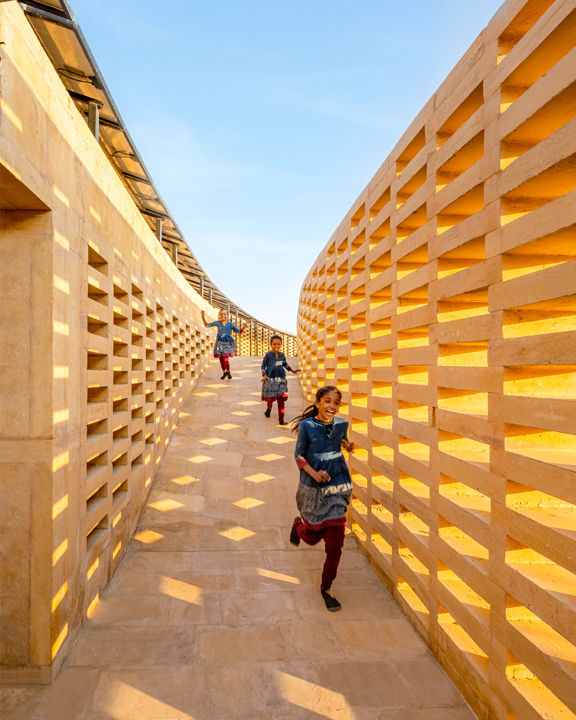
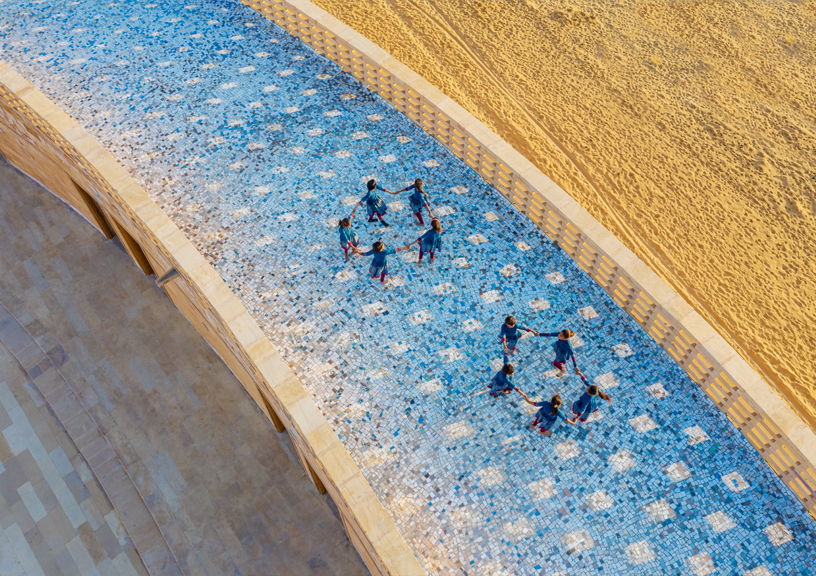
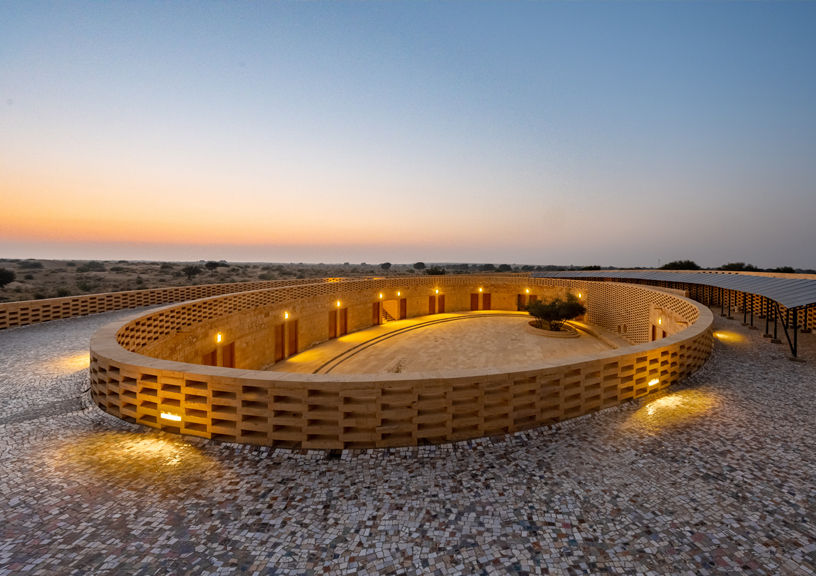
Factfile
Project: Rajkumari Ratnavati Girls School, Rajasthan
Architects: Diana Kellogg Architects, New York
Client: CITTA
Design team: Diana Kellogg (Principal Architect – Pro bono); Michael Daube — Citta Director – Founder; Basia Kuziemski — Architectural Designer & Renderings; Arya Nair — Assistant Architect; Pankaj Kumar Rastogi, Amit Kumar Sinha — Genus Innovations, Solar engineer; Surya Kumar — Illustration Drawings; Kareem Khan — General Contractor
Site area: 32,925.25sq m
Cost of project: $380,000
Year of completion: 2021
